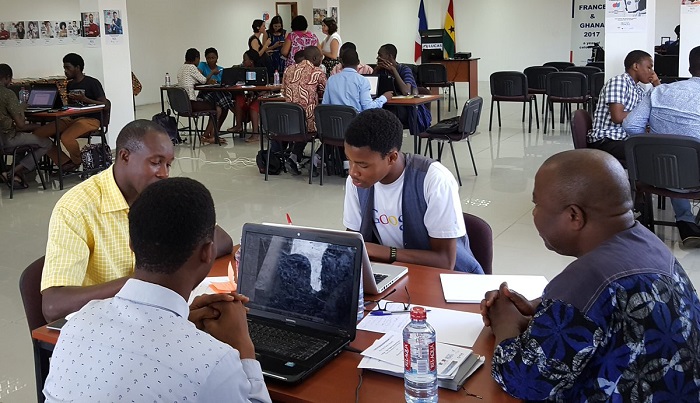
Tertiary institutions asked to produce problem solvers
The Human Resources Manager of International Resources Machines (IBM), Mr Andy Mensah, has called on stakeholders of tertiary institutions to offer their students practical-oriented courses to make them problem solvers in the professional world.
Advertisement
He said doing that would add value to the industries, explaining that “industrial players just do not need employees to pay them, but employees who can solve some problems confronting the industries”.
Trained graduates
Mr Mensah said this at a press launch organised by Leaders University College for Applied Science (LUCAS) to inaugurate its institution in Accra.
In attendance were industrial players, school authorities and the media.
Highlighting the need to train more graduates for the industries, he said some graduates were technologically handicapped; for instance, they did not know how to use Microsoft Excel, Spreadsheet, PowerPoint among other basic things required in industries.
“You all graduate with First Class, so if I am looking for the best, I am not just looking at your certificate but I will look at someone who has some experience and coming out to know how business works,” he noted.
He indicated that the world of work needed graduates who were innovative, creative and could make decisions on their own with little or no supervision.
“Industry players are not ‘Father Christmas’ who employ you and struggle to pay you, but we expect that you add value to what you are already doing.”
“So if you are thinking you will be employed without adding value to the company, then it is rather unfortunate.”
“These are the kinds of graduates most of our tertiary institutions were producing which had created a huge gap in the industry and academia,” he noted.
{loadmodule mod_banners,Nativead1}
Professionally oriented
As a way of bridging the gap between academia and professional world, the President of the LUCAS, Mr Toufic Tasso, said the institution would provide industry-based training processes, adding that it would be working with more of the service industry such as the French businesses and commerce in Ghana.
“Our programmes are such that you can do a three-year programme in Ghana with the option of the final one-year in Ireland with one year working experience or a straight fourth year in Ghana,” he said.
Explaining the way to bridge the gap between Ghana and neighbouring countries, he said students in their first two years would compulsorily study French which would give them the competitive edge to work in both Francophone and Anglophone environments.
The university’s flagship programme, he said, was the coding school where students would be taught basic computing and that there was the need for professionals who could administer systems and build relevant systems now and in the future.
Mr Tasso said the rate at which technology was growing was exponential with its pervasive potential impact and encouraged prospective students to pursue and avail themselves of coding lessons.



